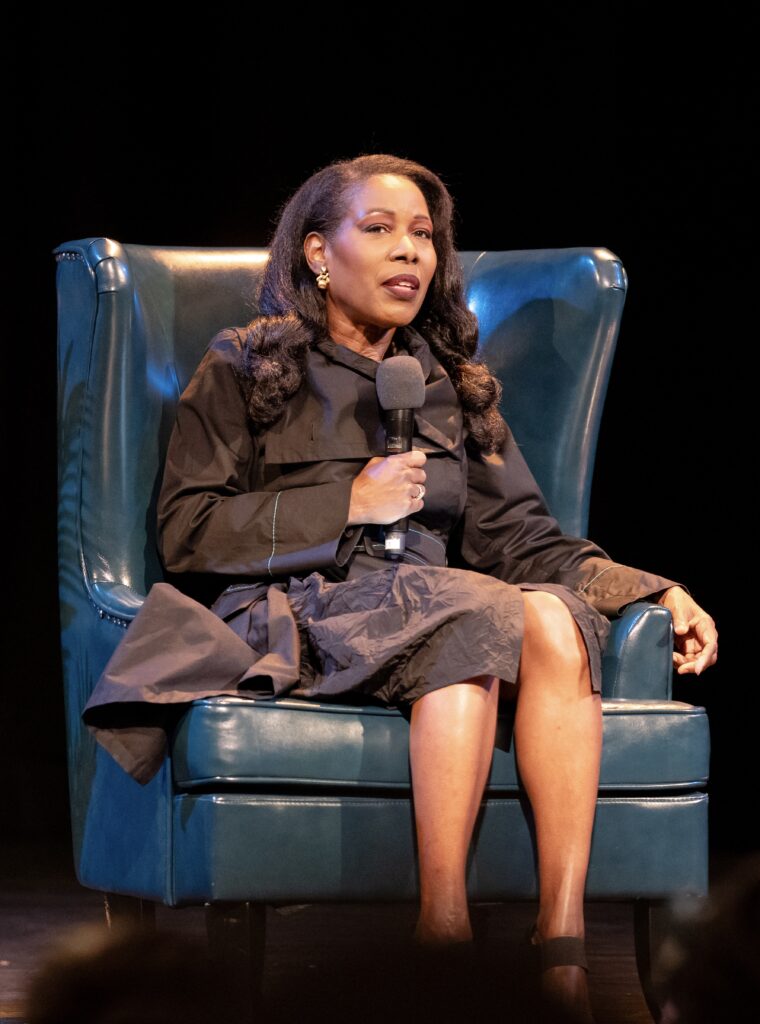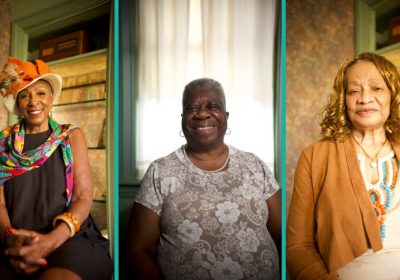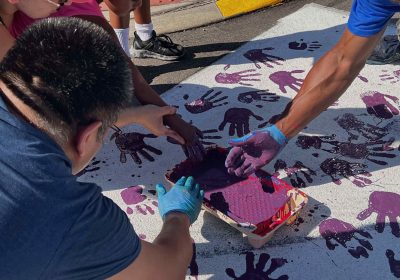From the moment Isabel Wilkerson stepped to the lectern at the August Wilson African American Cultural Center in Pittsburgh, she held the sold-out audience in rapt attention.
The Pulitzer Prize-winning author shared stories gleaned from 15 years spent researching and writing her book, “The Warmth of Other Suns: The Epic Story of America’s Great Migration,” including examples of life in the Jim Crow south. She talked about her decision to prioritize people, not data, while chronicling stories of the Great Migration. And as she does throughout her work, she raised the questions of, what is our history? Who gets to tell it? And who has the right to erase it, if they so choose?
Pittsburgh is the hometown of famed playwright August Wilson and one of the midwest receiving stations of the Great Migration, and provided the ideal setting for Wilkerson’s talk to officially kick off PA Humanities’ newest project, Voices of History: Stories from Black Pennsylvanians. Created to help celebrate PA Humanities’ 50th anniversary, it is a first-of-its-kind statewide effort to collect and celebrate the stories, family histories, struggles and triumphs of Black Pennsylvanians in the 20th and 21st centuries.

“The Voices of History project is inspired by Wilson’s plays, which focus on everyday people in his neighborhood,” said PA Humanities Senior Director of Content and Engagement Dawn Frisby Byers, who helped conceptualize the project. “There is ample knowledge about Black people who accomplished important things or who rose to fame, but little attention paid to the everyday men and women who worked hard, raised families, and created communities. We’re looking to capture the stories centered on a particular family memory or object; the types of stories shared around your grandmother’s kitchen table or your uncle’s backyard.”
In “The Warmth of Other Suns,” Wilkerson tells the story of three individuals who migrated from different parts of the south and settled in New York, Chicago and Los Angeles, respectively. Through extensive interviews, she traces their lives from growing up in the south, their journeys away in search of better lives, and what happened after they reached their destinations. Released in 2011, the book is a New York Times bestseller and a National Book Critics Circle Award winner.
During an audience question and answer session after the talk, Wilkerson said that she wanted to present the stories of the people who lived through the migration, which was often written about from a scholarly perspective and/or through the lens of data.
“I wanted to hear from the people themselves,” she said.
Similarly, Wilson is best known for his series of 10 plays, often called the Pittsburgh or Century Cycle, which portray life in Pittsburgh’s Hill District neighborhood in the 20th century through the stories of the African Americans living there. He won two Pulitzer Prizes and multiple Tony Award nominations for his work.
The Voices of History project was born from that same notion that there is great power in sharing the stories of everyday people. PA Humanities will be working with local partners in Pittsburgh, Erie, Scranton, Philadelphia, York, and State College to collect peoples’ stories through both audio and video recordings to build a digital archive. The stories will be available to anyone interested to learning about the richness and diversity of Black Pennsylvanian history.
PA Humanities and their partners at the August Wilson House are currently collecting stories from residents of the Hill District, Garfield/East Liberty and Homewood-Brushton/Wilkinsburg in Pittsburgh.
Do you have a story to share? Click here.
One of the first stories collected for the Voices of History project was from J.P. Brice, who lives in Chester and served as an advisor for PA Humanities’ Chester Made Digital Stories program. He told the story of his grandmother’s apron, how she rediscovered her love of cooking three years after the death of her husband in the 1970s, and how he remembers her wearing that apron, cooking, smiling at him, and teaching him that if you don’t love something, don’t do it.
“It’s fitting that our Pittsburgh partner for the Voices of History project is the August Wilson House, a beautifully restored building that serves as an art gallery, community space, and historic testament to August Wilson and his beloved neighborhood, The Hill District,” Frisby Byers said. “I hope our Voices of History project celebrates the countless stories that evoke favorite memories and define the meaning of family.”

Funding for the Isabel Wilkerson event and Voices of History is made possible with the generous support of The August Wilson African American Cultural Center, Erie Insurance, The Heinz Endowments, Tom Hagen, PNC, and The National Endowment for the Humanities through United We Stand: Connecting Through Culture.

![[color – dark bg] PA SHARP FINAL FILES DB 72dpi [color - dark bg] PA SHARP FINAL FILES DB 72dpi](https://pahumanities.org/uploads/files/elementor/thumbs/color-dark-bg-PA-SHARP-FINAL-FILES-DB-72dpi-phgl7aimtfdpzt2rscvl43ksfv3asbbls19lsvuacw.jpg)

